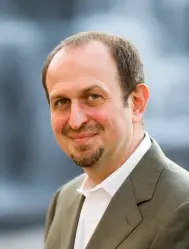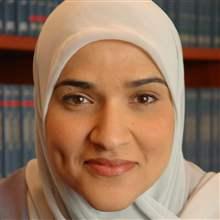Content from the Brookings Doha Center is now archived. In September 2021, after 14 years of impactful partnership, Brookings and the Brookings Doha Center announced that they were ending their affiliation. The Brookings Doha Center is now the Middle East Council on Global Affairs, a separate public policy institution based in Qatar.
The Doha Discussion Papers provide testament to the opportunity for renewed dialogue between the United States and the Muslim world. Written specifically for the U.S.-Islamic World Forum’s three task forces, they have been edited and compiled into separate volumes on governance, human development and social change, and security. The Doha Discussion Papers bring together the major papers and responses that frame each of the task force discussions. They include as well a summary of the off-record discussions at each of the task force sessions held at the U.S.-Islamic World Forum.
INTRODUCTION
Since 2002, the Brookings Project on U.S. Relations wi th the Islamic World has been convening conferences and forums in Qatar in partnership with the Ministry of Foreign Affairs of the State of Qatar. I have been honored to be part of those discussions since the very beginning, initially as a participant, then a session convener, and now as a fellow at the Saban Center and convener of a task force that focuses on human development and social change within the U.S.-Islamic World Forum.
Since 2002, I have sat in the very same rooms for this debate, watching the discussion transform itself first from confrontational to reconciliatory, and now, to productive and cooperative. Although differences remain, a sense of desire for tangible participation has entered the dialogue.
The creation of the task force on human development and social change represents an opportunity for partnership on areas of common ground.
The initial discussion in our task force this year was to examine the linkages between economic development, political development, democracy and social stability in the Muslim world, and examine why this matter should be important to the Unted States and the broader international community. To set the stage, we brought together the Minister of Social Development from Jordan, a country that has made dramatic strides in recent decades, and a renowned American scholar, Francis Fukuyama.
The second part of the discussion focused on a tangible effort proposed by myself and Ms. Katherine Marshall of the World Bank and Georgetown University to create a more sustained focus on human development across the Muslim world and examine differences across the various sub-regions through the creation of a Muslim world human development report. For sure, some found this idea provocative. But Ms. Dalia Mogahed of Gallup provided exceptionally thoughtful reactions to the proposal, discussing how the polling she had managed for Gallup showed that the idea may very well make a lot of sense.
For the final part of the discussion we brought together two development practitioners, one from Jordan, Ms. Soraya Salti of Junior Achievement Worldwide, and one from the United States, Mr. Bill Reese of the International Youth Foundation. They found remarkably common causes in the priorities for empowering youth in the region.
We hope that this year’s dialogue will yield the fruit of more careful attention and study of human development across the Muslim world. Already the idea is beginning to permeate other institutions and discussions, from the heart of Arabia to Washington, D.C.
By the time the U.S.-Islamic Forum convenes in 2009, there will be a new president in Washington, and an opportunity to reboot the U.S. relationship with the Muslim world. I firmly believe that the discussions that have been taking place since 2002 in Doha under the auspices of the Saban Center at Brookings, and the relationships that have developed over these years, can play a decisive and constructive role in transforming the quality and the tone of the relationship between the Untied States and the Muslim world. As someone who, from childhood, has spent a significant proportion of my life in both the United States and the Muslim world, and has spent virtually my entire professional career working across that divide in some way, I can say that never before has there been a more urgent need to transform U.S.-Muslim world relations for the better.
— Hady Amr




